Maserati Grecale Modena hits the middle ground, an SUV for the badge-conscious
The Maserati Grecale Modena shows just how far a brand has to go to make an impact in the contemporary car market. How does it reflect on the Italian company’s long heritage?
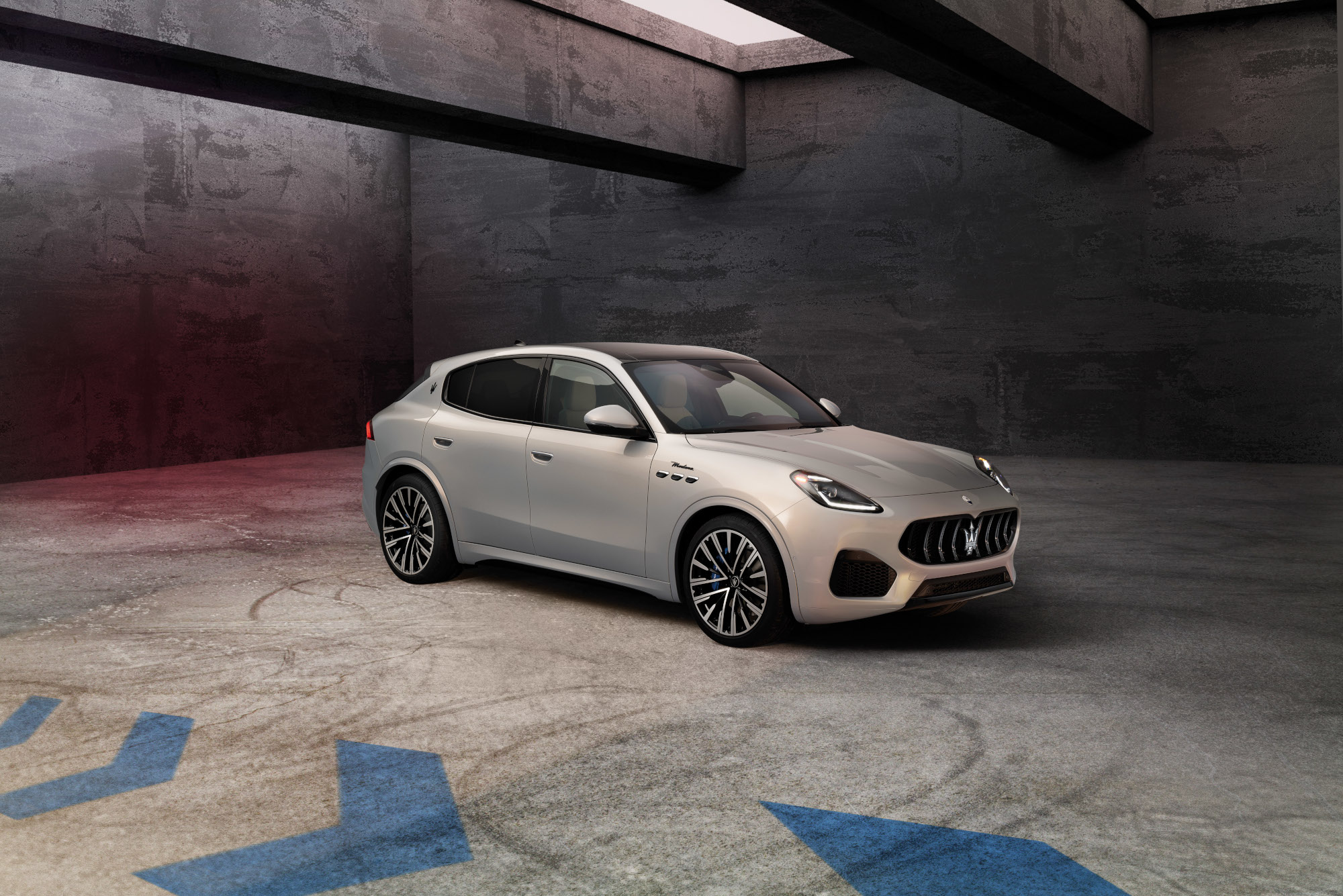
Receive our daily digest of inspiration, escapism and design stories from around the world direct to your inbox.
You are now subscribed
Your newsletter sign-up was successful
Want to add more newsletters?

Daily (Mon-Sun)
Daily Digest
Sign up for global news and reviews, a Wallpaper* take on architecture, design, art & culture, fashion & beauty, travel, tech, watches & jewellery and more.

Monthly, coming soon
The Rundown
A design-minded take on the world of style from Wallpaper* fashion features editor Jack Moss, from global runway shows to insider news and emerging trends.

Monthly, coming soon
The Design File
A closer look at the people and places shaping design, from inspiring interiors to exceptional products, in an expert edit by Wallpaper* global design director Hugo Macdonald.
Of all the Italian car brands, Maserati has travelled the furthest from its original conception. Lamborghini and Ferrari still cater to the select coterie of moneyed enthusiasts that have always hankered after the marque, whilst Alfa Romeo, Fiat and Lancia have weathered decades of ups and downs to all land within the embrace of Stellantis. Today, Maserati sits alongside them, undoubtedly the most storied and aspirational name in the multinational’s line-up.
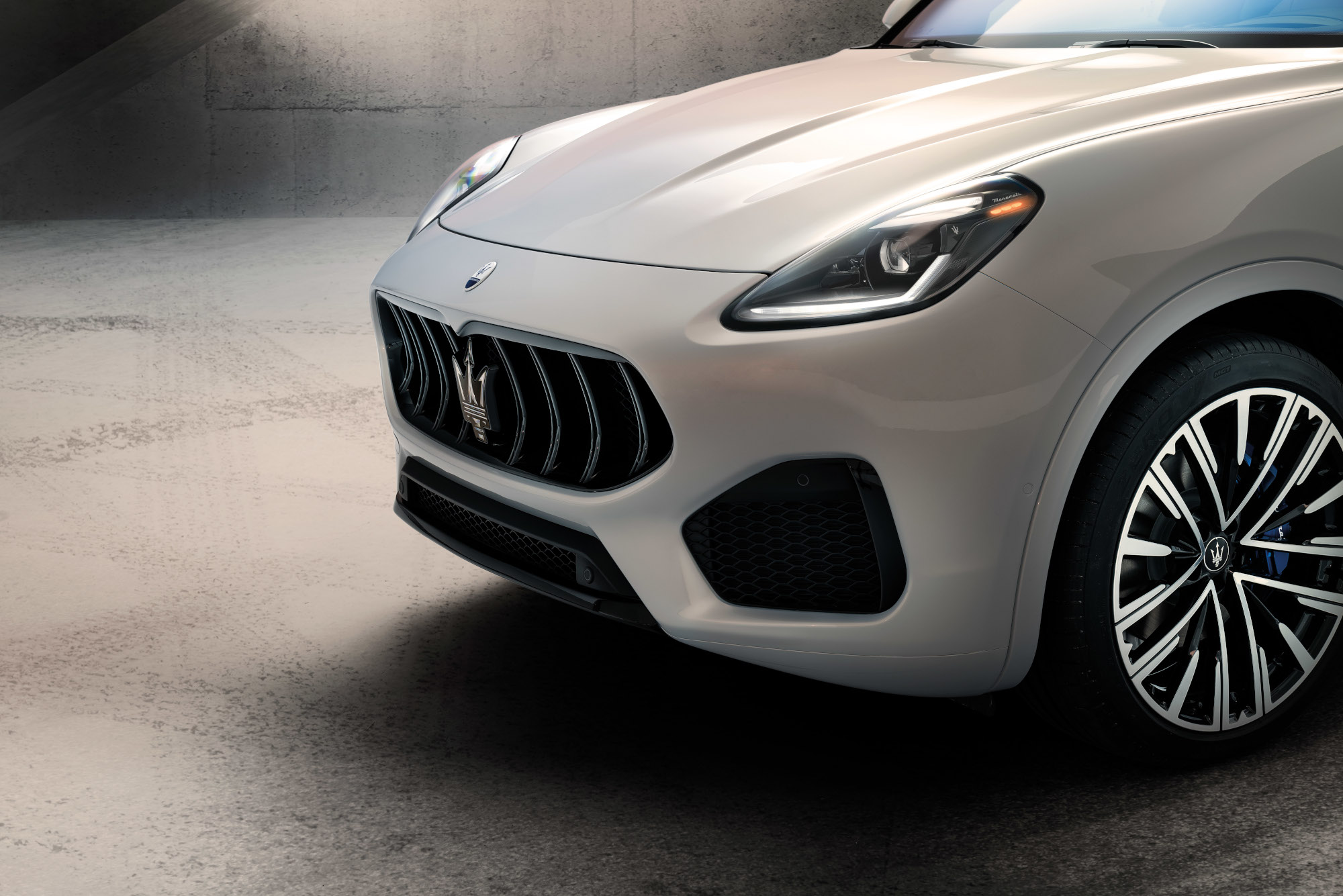
The Maserati of old was about tailor-making exotica for the jetsetters of an earlier era, with all the economic strife and uncertainty that accompanied shifting markets, demographics, fashions and crises amongst the super-rich. It was a glamorous but fraught existence. Ownership of the brand bounced around the industrial giants of Europe, including a 1970s stint with now label-mates Citroën, before a long association with Fiat, then Ferrari, then Alfa Romeo, ultimately set the company on a firmer footing for the 21st century.
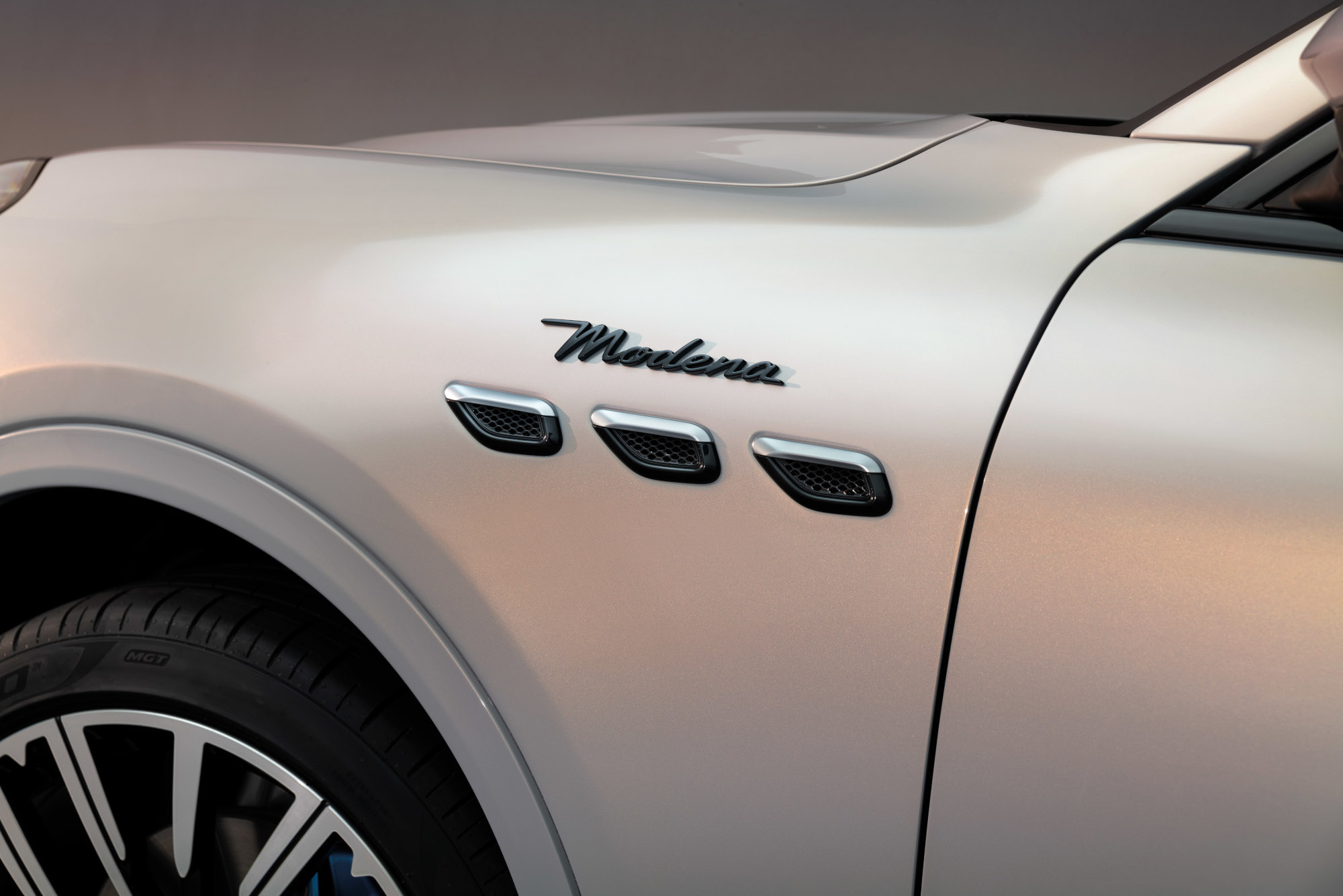
The Maserati line-up was solid but relatively static throughout this period of industrial revolving doors, with cars like the original GranTurismo staying in production for 12 long years (2007 – 2019). Other traditional mainstays like the Quattroporte luxury saloon found their slender niche whittled ever slimmer as SUVs emerged to take over the mid- and upper-market segments. Into this fast-evaporating pool, Maserati also launched the Ghibli, an elegantly doomed rival for the likes of Jaguar, Audi and BMW (‘You’re Not Like Everyone Else,’ reads the strapline on the Ghibli website).
Maserati Grecale Modena
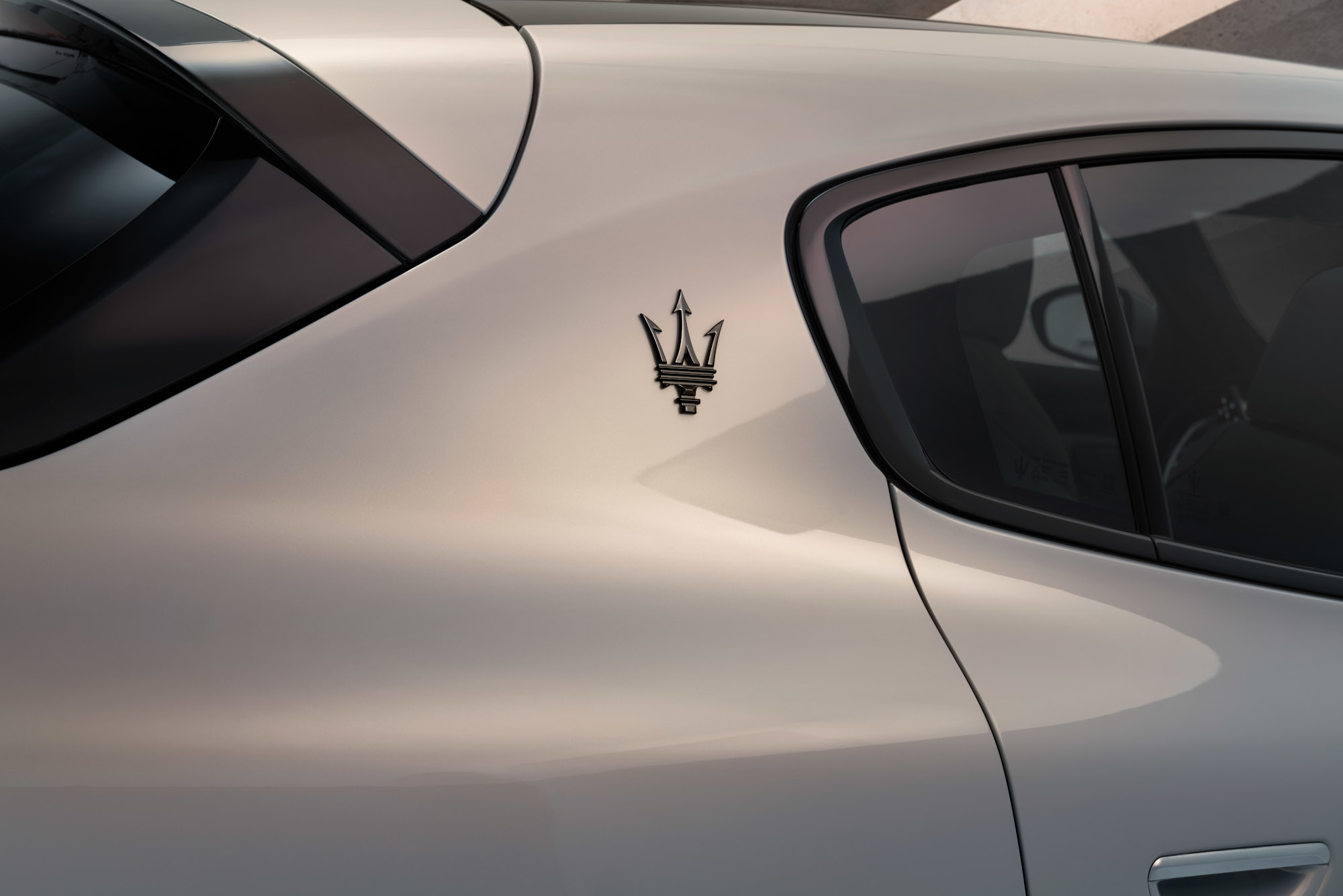
The Grecale is the newest entry point to the brand, the most affordable Maserati on the market and the one that has – according to enthusiasts – finally divested the Maserati name of any lingering glamour from its glory years. In fact, if it wasn’t for the electrifying (but not electric) MC20 supercar, and the new second series GranTurismo (which does come as an EV), the Maserati of old would effectively be dead and buried.
The Grecale is Maserati’s second SUV, a smaller sibling to the 2016 Levante. Currently available with two engines, a four-cylinder with mild hybrid assistance (the vanilla of hybrid systems) and a V6 in the high-performance Trofeo edition, it’ll be electrified in due course, thanks to the component and systems-sharing facilitated by being part of a vast manufacturing group.
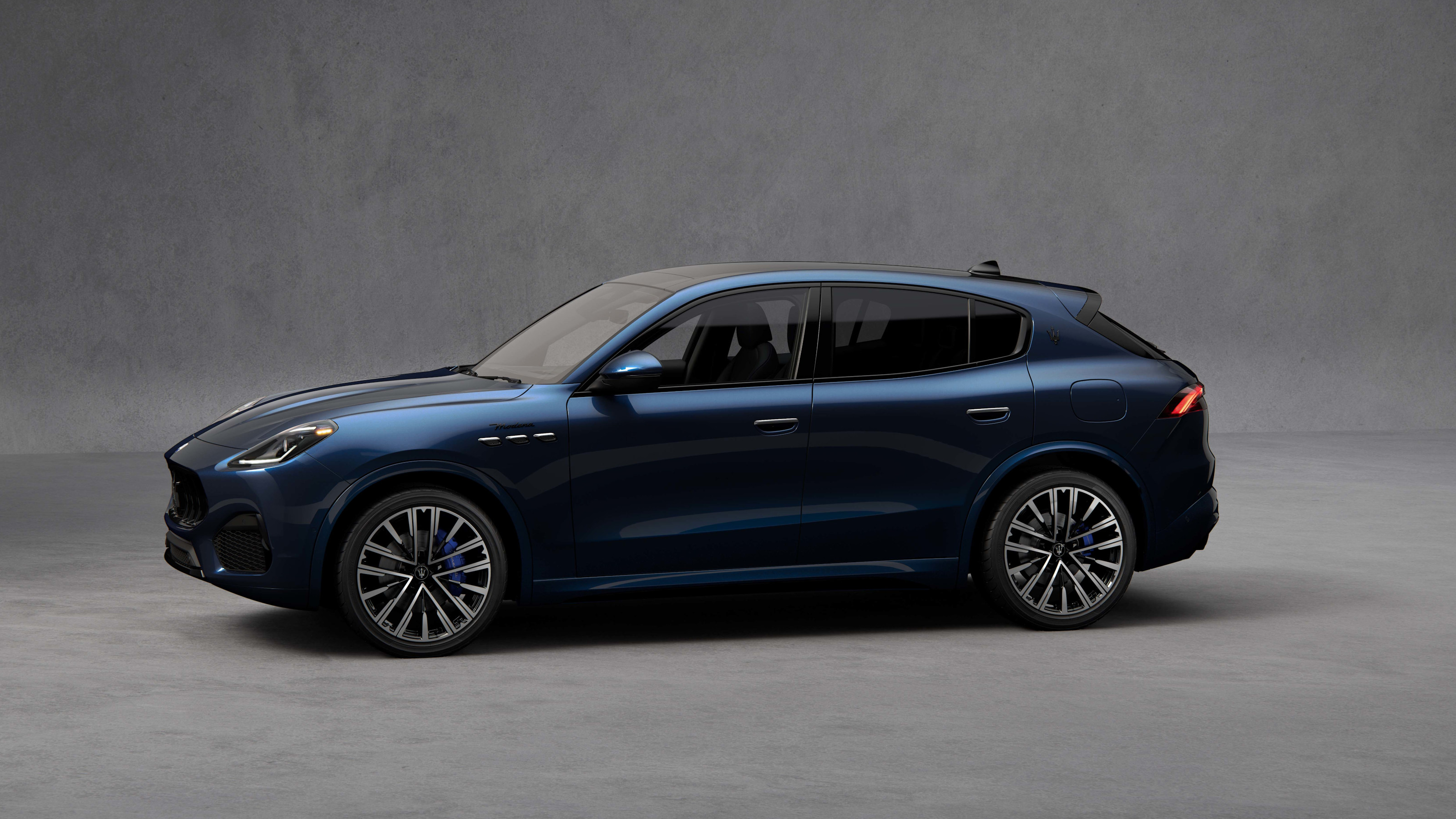
Like many Maseratis since the early 1960s, the Grecale name has been derived from a wind, this time one that blows north-easterly in the Mediterranean. We tried the mid-range Modena model, which offers 330hp from its four-cylinder engine (compared to 530hp in the V6). Despite being touted as a mid-size SUV, the Grecale is not svelte, at 4.8m long. It’s the kind of car you sit on, rather than in, giving you the sense of aloof alienation that seems to lure so many buyers to the SUV segment. It’s a world apart from the spindly elegance of Maseratis of old. Elements like the thick A-pillar and 2.1m width from mirror to mirror make it feel much less wieldy than the MC20, a genuine old-school, low-slung supercar that offers far better visibility.
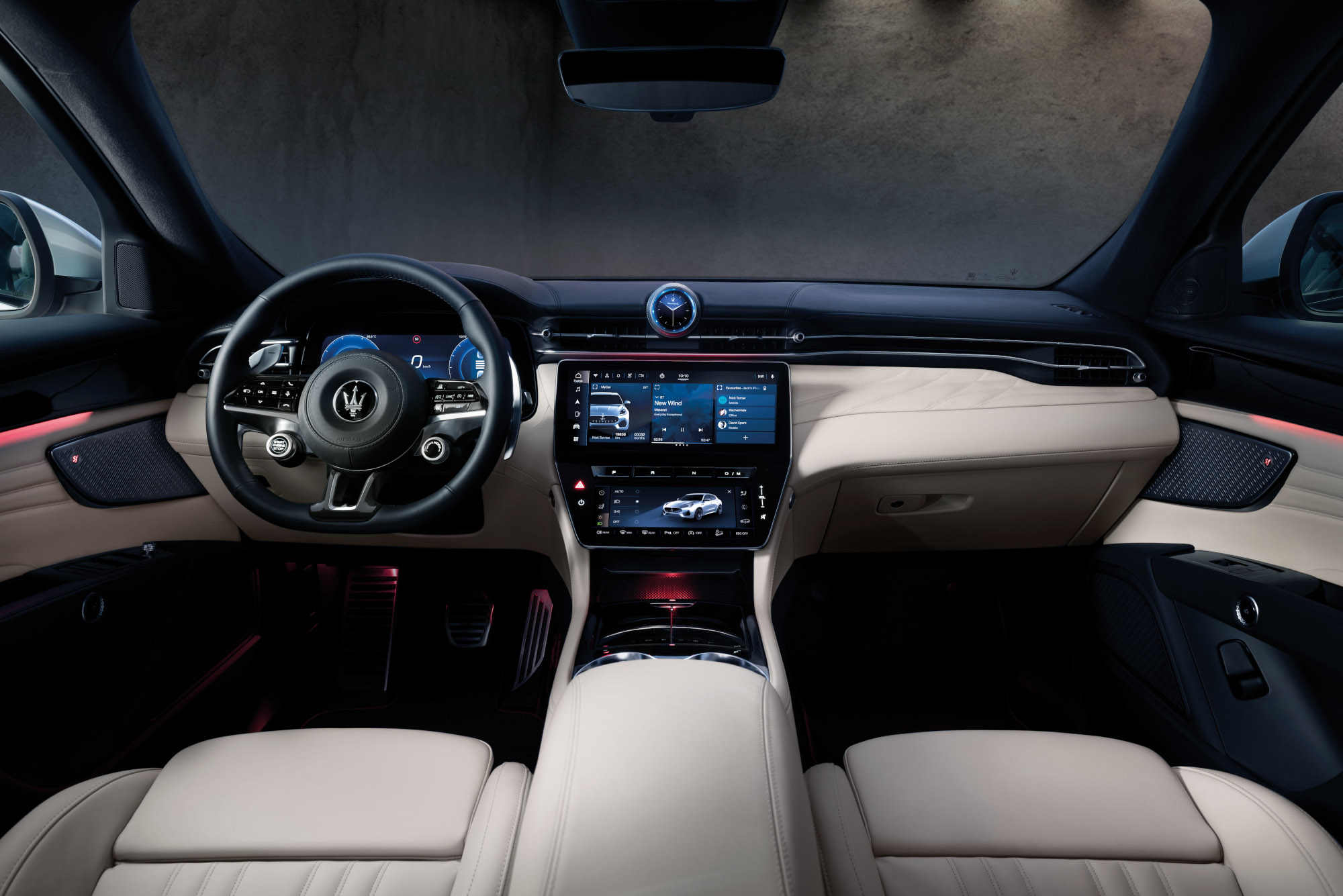
Maserati describes the Grecale as the ‘everyday exceptional’, and it’s pitted against the likes of the Porsche Macan and the Range Rover Sport – family cars that retain the persistent magic of an enduring brand as a way of disguising their essential conformity. In this respect, MC20 owners and Grecale owners might as well exist on two different planets.
Receive our daily digest of inspiration, escapism and design stories from around the world direct to your inbox.
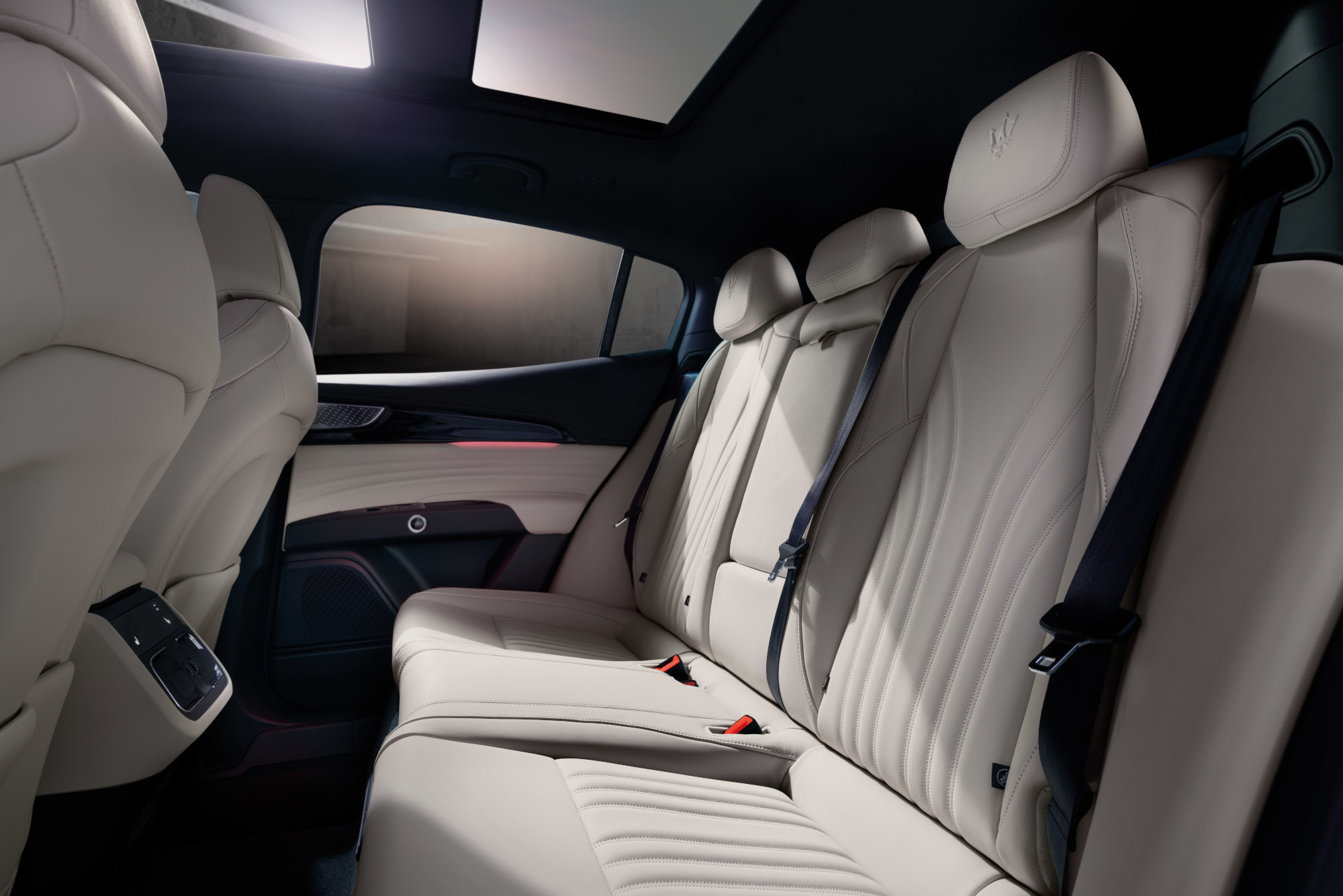
If you have the right combination of status anxiety and available space, then the Grecale shouldn’t disappoint. Even in Modena trim it’s a decent performer, although the hybrid system doesn’t do much to quench the big car’s thirst. Cabin fit and finish is high quality, with many essential functions located on the steering wheel; the twin touch screen displays are visually coherent if haptically challenging.
As well as a digital instrument cluster, Maserati has retained its central high level clock display, originally a conventional quartz mechanism but now a screen that can display a compass and G-meter as well as digital and analogue clocks. There’s also a rousing sound system by Italian audio specialists Sonus faber.
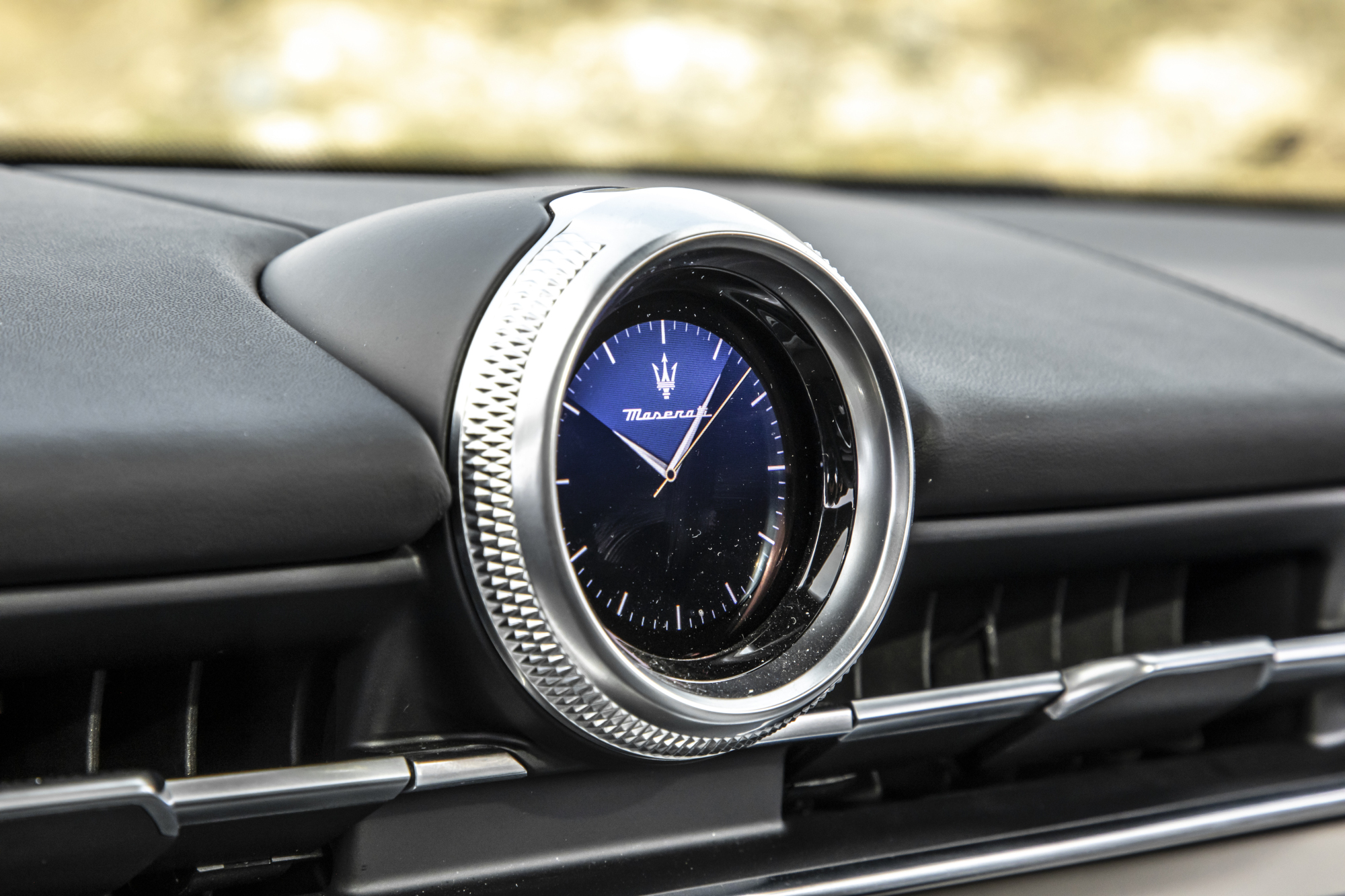
Visually, the Grecale SUV is a collage of greatest hits from Maserati design, from taillights inspired by the Giugiaro-designed 3200 GT, to the over-sized Trident mascot on the grille, and the triple vents on the front flank and the neat headlights that appear to flow into the front wings. Inside, there’s a stitched graphic motif said to be inspired by the engineering-driven architecture of Pier Luigi Nervi. The rear screen is rakishly angled and the Trident reappears on the C-pillar; the branding is verging on the unsubtle.
Until recently, Maseratis made a virtue of their raucous engine noise; thankfully the Grecale Modena is more muted on that front. With electrification on the near horizon, it’ll be interesting to hear what sonic confection Maserati concocts to keep this particular brand pillar alive for a more noise conscious age.
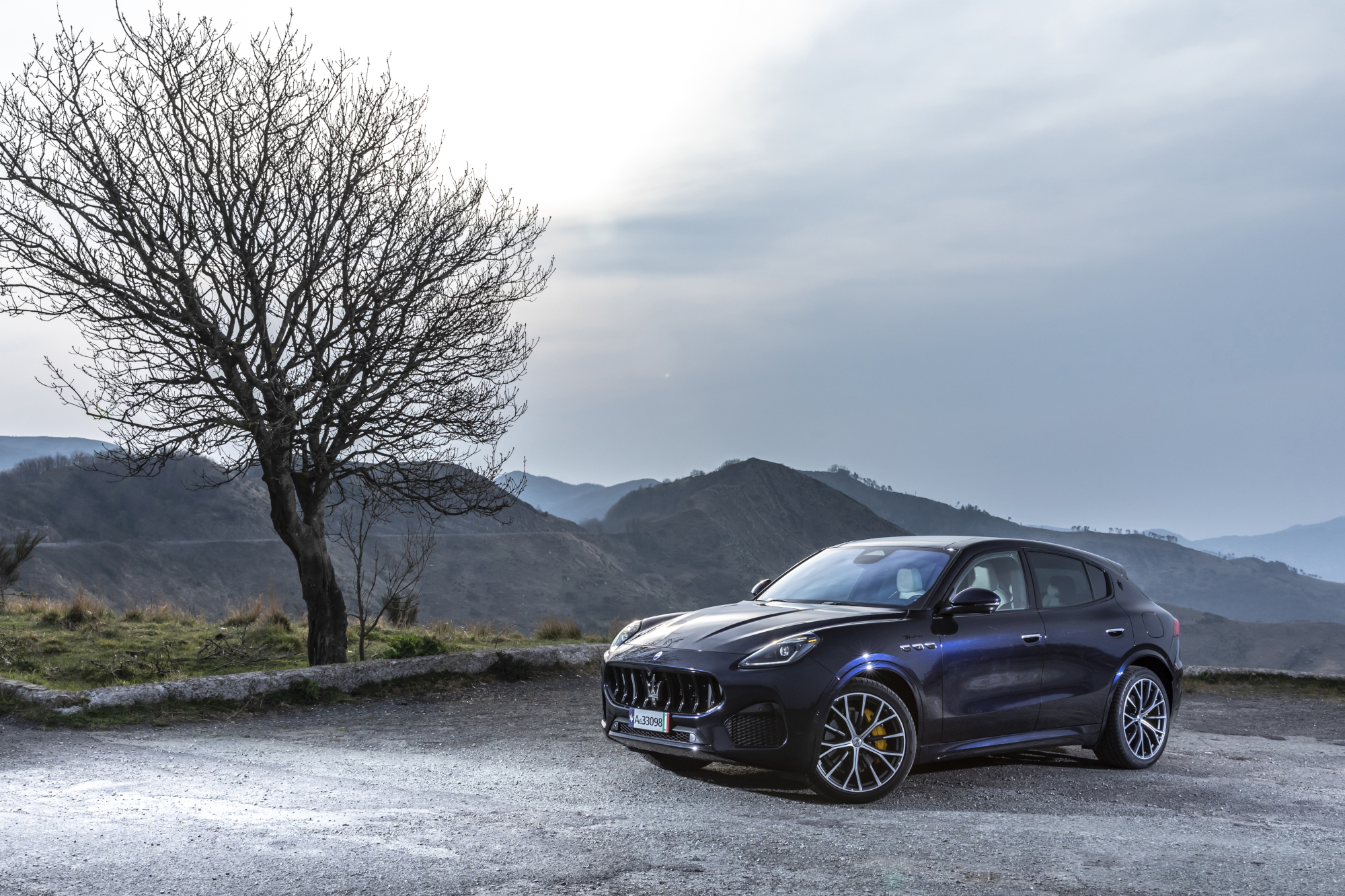
At this point in time, the SUV exists as the ultimate automotive chameleon – it can be whatever you want it to be and blend seamlessly into any context. Sports car, family car, luxury car, utility car, electric car – the language of design and marketing can be made to accommodate them all, with enough physical space for designers to shift and tailor the package and presentation. Who is this particular car for? It’s certainly not for the traditional Maserati buyer, a select group that once included Sheikhs and rock stars and tended to favour drama over efficiency and impact over practicality.
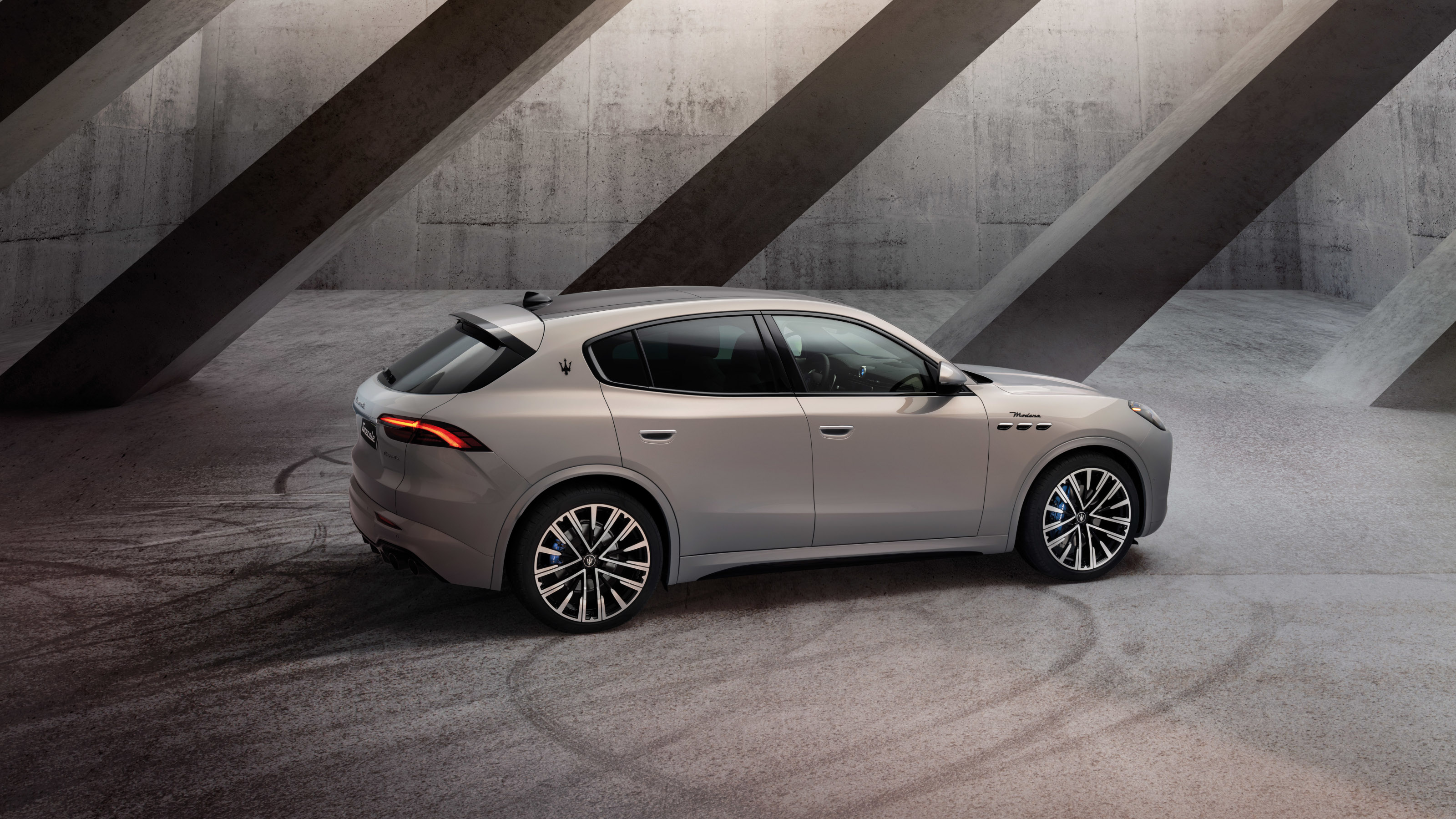
The Levante leaves production this month, just as the new GranCabrio arrives to add further lustre to the brand’s history and luxury focus. Maserati’s challenge is to walk the line between building highly desirable supercars and ‘mass premium’ machines like the Grecale that’ll keep it on a secure footing. Ultimately, Grecale ownership might get you into the Maserati club, but it’s an institution that has changed beyond all recognition since it was originally founded.
Maserati Grecale Modena, from £70,925, Maserati.com, @Maserati
Jonathan Bell has written for Wallpaper* magazine since 1999, covering everything from architecture and transport design to books, tech and graphic design. He is now the magazine’s Transport and Technology Editor. Jonathan has written and edited 15 books, including Concept Car Design, 21st Century House, and The New Modern House. He is also the host of Wallpaper’s first podcast.